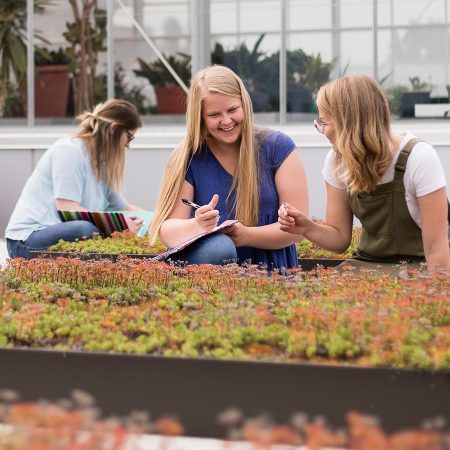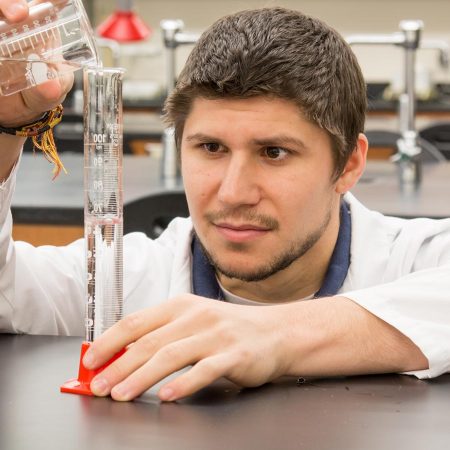Bachelor of Science Biochemistry
Biochemistry is an ever-growing field that unravels the chemical processes of living organisms. Our Biochemistry program will provide specialized field-related coursework and equip you with essential chemistry and biology skills. Start today to prepare for a career in science or pre-professional programs.
Benedictine Scholarship
All new first-year applicants to St. Scholastica will be awarded either the Benedictine Scholarship or the Access Award, upon admission to the College.
Financial Aid
100% of traditional incoming undergraduates receive some type of scholarships. The average for scholarships, grants and/or loans is $31,841.




